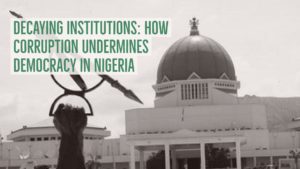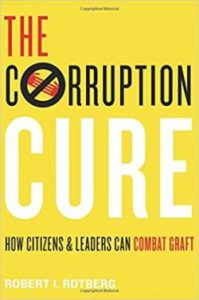 Life for Isabel dos Santos appears to be an endless round of international conferences, meetings with celebrities and the run-of-the-mill experiences of the average billionaire philanthropist, although critics claim that she is a poster girl for African kleptocracy, The (London) Times reports:
Life for Isabel dos Santos appears to be an endless round of international conferences, meetings with celebrities and the run-of-the-mill experiences of the average billionaire philanthropist, although critics claim that she is a poster girl for African kleptocracy, The (London) Times reports:
A third of people in Angola, where her father ruled for 38 years, survive on less than £2 a day, but she has been revealed as the owner of a £13 million mansion in one of Britain’s most secretive gated communities. …..Critics claim that she epitomises the rampant kleptocracy that took root in Angola as a direct result of her father’s rule. The country is ranked 165 out of 180 on the latest “corruption perceptions index” produced by Transparency International. The campaign group claims that under his regime “a deeply entrenched patronage system” arose that benefits members of the futungo, a cabal of senior politicians and their families who “control much of the opaque financial dealings of the state”.
“The fact that this property is owned by Isabel dos Santos, through a company based in a tax haven, should raise all the red flags for corruption risk,” said Simon Taylor, a co-founder of Global Witness, which investigates alleged corruption. “The National Crime Agency should urgently investigate the source of the funds used to buy this property and if these cannot be determined as legitimate, the property should be seized under the unexplained wealth order regime.”
 Rafael Marques de Morais,* an investigative journalist and notable thorn in the side of Angola’s ruling elite, acknowledges real change under João Lourenço’s new presidency. For one thing, he says, the surveillance equipment outside his home is gone, OZY reports:
Rafael Marques de Morais,* an investigative journalist and notable thorn in the side of Angola’s ruling elite, acknowledges real change under João Lourenço’s new presidency. For one thing, he says, the surveillance equipment outside his home is gone, OZY reports:
Although the Lourenço administration has moved swiftly against parts of the old regime, de Morais says, others tainted by corruption have remained close to power. An amnesty on laundered money deposited abroad resulted in no meaningful return of illicit funds, he adds. Defenders of Lourenço say that, given the small size of the Angolan elite, the president has little option but to recycle educated technocrats. He has drawn a line under past misdeeds, goes the explanation, but will not tolerate new ones.
Marques has a simpler interpretation. “If you surround yourself with sharks it’s because you like sharks,” he says. “If I had to summarize what’s happening in the country I would say the president came in with very good intentions, unprecedented political goodwill — and a total lack of vision on how to proceed.”
 Anti-corruption efforts by authoritarian regimes are often assumed to be political charades or excuses to purge rivals, according to Christopher Carothers, a postdoctoral fellow at the Center on Democracy, Development and the Rule of Law at Stanford University. The common view is that meaningful corruption control involves strengthening democratic institutions, such as judicial independence and the rule of law, which autocrats are largely unwilling to do.
Anti-corruption efforts by authoritarian regimes are often assumed to be political charades or excuses to purge rivals, according to Christopher Carothers, a postdoctoral fellow at the Center on Democracy, Development and the Rule of Law at Stanford University. The common view is that meaningful corruption control involves strengthening democratic institutions, such as judicial independence and the rule of law, which autocrats are largely unwilling to do.
However, successful anti-corruption reform by nondemocratic governments is more common than is widely acknowledged – there have been at least nine successful reforms in autocracies in recent decades. Moreover, research finds that in these cases autocrats did not reduce corruption through the conventional democratic approach, but instead used decidedly authoritarian methods, and often strengthened their regimes in the process, adds Carothers, citing Xi Jinping’s ongoing anti-corruption campaign in China, alongside cases in authoritarian South Korea, Taiwan, and elsewhere.
 His research in comparative politics focuses on East Asia, authoritarianism, and the politics of corruption, and has previously been published in the NED’s Journal of Democracy and other media outlets.
His research in comparative politics focuses on East Asia, authoritarianism, and the politics of corruption, and has previously been published in the NED’s Journal of Democracy and other media outlets.
Christopher Carothers, Postdoctoral fellow at Center on Democracy, Development and the Rule of Law (CDDRL).
October 3, 2019 12:00 PM – 1:30 PM
Freeman Spogli Institute, Stanford University. RSVP.
*A NED Democracy award winner and former Reagan-Fascell fellow.







